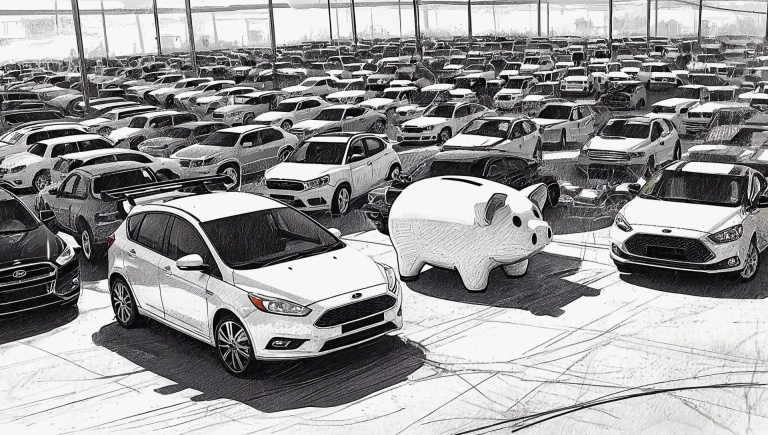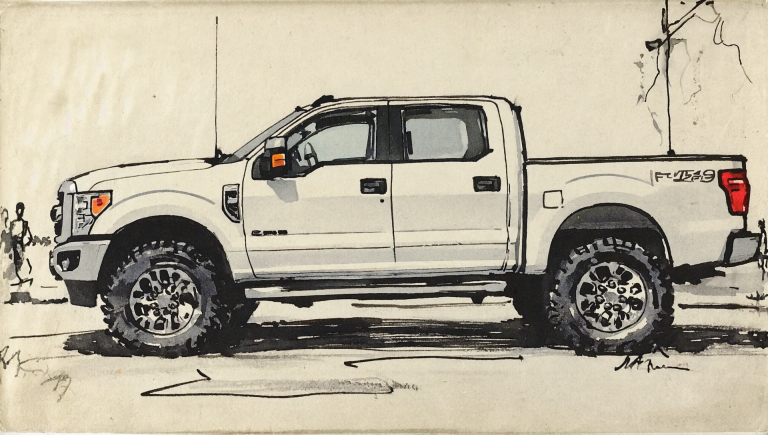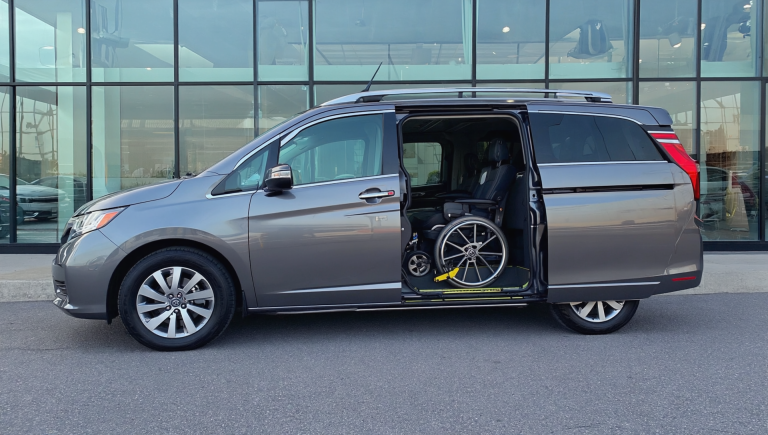The Smart Buyer’s Guide to Second-Hand Cars: Affordability, Value, and Choice

Buying a second hand car can be one of the smartest financial decisions you make. As new car prices continue to rise and depreciation takes its toll almost immediately, purchasing a used vehicle offers significant advantages in terms of affordability, value retention, and flexibility. This comprehensive guide explores the many benefits of buying second hand cars, provides practical tips for evaluating and negotiating, and offers insights into the current state of the used car market.
In today’s fast-paced world, the demand for reliable and cost-effective transportation has driven many consumers to consider used cars as a viable alternative to new models. With a wide variety of makes, models, and price points available, second hand cars offer a level of choice that can accommodate virtually every budget and lifestyle. Whether you are a first-time buyer, a growing family in need of a spacious vehicle, or someone looking to upgrade without breaking the bank, the benefits of buying a second hand car are undeniable.
Affordability and Cost Savings
One of the primary advantages of purchasing a second hand car is affordability. New cars typically lose a significant portion of their value within the first few years of ownership, a phenomenon known as depreciation. By buying a used car, you avoid the steepest part of the depreciation curve, which means you pay much less for a vehicle that still has many years of reliable service ahead.
In addition to the lower initial cost, second hand cars often have lower insurance premiums and registration fees compared to new vehicles. These savings can add up over time, making the overall cost of ownership much more attractive. For budget-conscious buyers, the used car market provides an opportunity to obtain a higher-end model at a fraction of its original price.
Moreover, the reduced financial burden of buying a used car allows you to allocate your resources to other important areas, such as maintenance, upgrades, or even savings for future investments. The flexibility to choose from a diverse range of models means you can find a car that meets your needs without compromising on quality.
Value Retention and Resale Potential
Unlike new cars, which experience rapid depreciation, second hand cars tend to retain their value better over time. This means that if you decide to sell your used car in the future, you are likely to recoup a larger percentage of your initial investment. Many buyers in the used car market are well-informed about depreciation trends and are willing to pay a premium for vehicles that hold their value.
Factors such as the vehicle’s condition, mileage, and maintenance history play a significant role in determining resale value. Cars that have been well cared for, with complete service records and minimal wear, often attract higher resale prices. As a result, purchasing a second hand car that is known for its reliability and longevity can be a smart long-term investment.
Additionally, popular models with a strong reputation in the market tend to have better resale potential. When considering a purchase, research the market trends and demand for specific models. This information can help guide your decision and ensure that your investment will hold its value over the long term.
Variety and Flexibility in the Used Car Market
The second hand car market is vast and diverse, offering buyers a wide range of options. Whether you are interested in a compact car for city driving, a family sedan with ample space, or a rugged SUV for off-road adventures, there is a used car that fits your needs. This variety allows buyers to select a vehicle that matches their lifestyle, preferences, and budget.
Another benefit of the used car market is the flexibility it provides. Many reputable dealerships and online platforms offer certified pre-owned vehicles, which have undergone rigorous inspections and come with warranties for added peace of mind. These programs ensure that you are getting a high-quality vehicle that meets strict standards of reliability and performance.
The ease of comparing different models and price points also empowers buyers to make informed decisions. Online reviews, vehicle history reports, and expert ratings are readily available, making it easier than ever to assess the condition and value of a used car. This transparency in the market builds confidence and helps eliminate much of the uncertainty traditionally associated with buying a used vehicle.
Practical Tips for Buying a Second Hand Car
When entering the used car market, preparation is key. Begin by setting a realistic budget that takes into account not just the purchase price, but also additional costs such as insurance, maintenance, and potential repairs. Research extensively to identify models that are known for their reliability and low maintenance costs.
Once you have a list of potential candidates, use online resources to check their market value and read reviews from other buyers. It is advisable to obtain a detailed vehicle history report to verify that the car has not been involved in major accidents or suffered from significant damage.
Arrange for a pre-purchase inspection by a trusted mechanic. This step can uncover any hidden issues and provide a clear picture of the car’s overall condition. During the test drive, pay close attention to the performance of the engine, brakes, and suspension, and listen for any unusual sounds that could indicate underlying problems.
Negotiation is another critical aspect of the buying process. With the wealth of information available, you are in a strong position to negotiate a fair price. Don’t hesitate to ask for discounts or inquire about financing options if needed. Remember, patience and thorough research are your best tools when navigating the used car market.
Maintenance and Long-Term Ownership
Owning a second hand car comes with the responsibility of regular maintenance to ensure that the vehicle remains in good working condition. Routine maintenance such as oil changes, tire rotations, and brake inspections is essential for prolonging the life of the car and preventing costly repairs down the line.
Establishing a relationship with a reliable mechanic and keeping detailed service records can greatly enhance the longevity and resale value of your car. Many used cars, when properly maintained, can provide years of dependable service, proving that cost-effective does not mean compromising on quality.
Moreover, investing in a comprehensive maintenance plan can help you avoid unexpected breakdowns and ensure that your car is always ready for the road. This proactive approach to vehicle care is not only beneficial for safety but also contributes to a more enjoyable ownership experience.
Environmental Considerations
In addition to financial benefits, buying a second hand car can have positive environmental implications. New vehicles often come with a significant environmental cost due to the resources required for manufacturing and the energy-intensive processes involved in production. By opting for a used car, you are essentially recycling an existing vehicle, which reduces waste and conserves resources.
Furthermore, many modern used cars are equipped with advanced fuel-efficient technologies and lower emissions standards compared to older models. This means that, despite being pre-owned, they can still offer considerable improvements in environmental performance. As consumers become more environmentally conscious, the appeal of buying second hand extends beyond just cost savings to include a commitment to sustainability.
The combination of reduced manufacturing waste and improved fuel efficiency makes purchasing a used car an eco-friendly choice. This aligns with broader trends in sustainability and responsible consumption, where buyers seek to minimize their environmental footprint without sacrificing functionality or performance.
The Future of the Used Car Market
As technological advancements continue to reshape the automotive industry, the used car market is also evolving. The rise of online marketplaces and digital platforms has made it easier than ever to buy and sell used vehicles, increasing transparency and competition in the market. With features such as virtual tours, detailed vehicle history reports, and customer reviews, buyers have access to an unprecedented amount of information that can guide their purchasing decisions.
Additionally, the advent of electric vehicles and hybrid technologies is influencing the used car landscape. As more environmentally friendly options become available, the demand for second hand cars that offer both modern features and sustainability is expected to rise. Buyers can benefit from the lower upfront costs of used electric or hybrid vehicles, along with the long-term savings associated with reduced fuel consumption.
The future promises a dynamic and competitive used car market that offers greater choice, better pricing, and more innovative purchasing options. Whether you are looking for a reliable daily driver or a specialized vehicle for a particular need, the evolving landscape of second hand cars provides ample opportunities for savvy buyers.
In summary, buying a second hand car is not only a financially sound decision but also a smart way to access modern technology, maintain reliability, and support sustainable practices. With careful research, thorough inspections, and a proactive approach to maintenance, you can enjoy the many benefits that come with owning a quality used vehicle.





